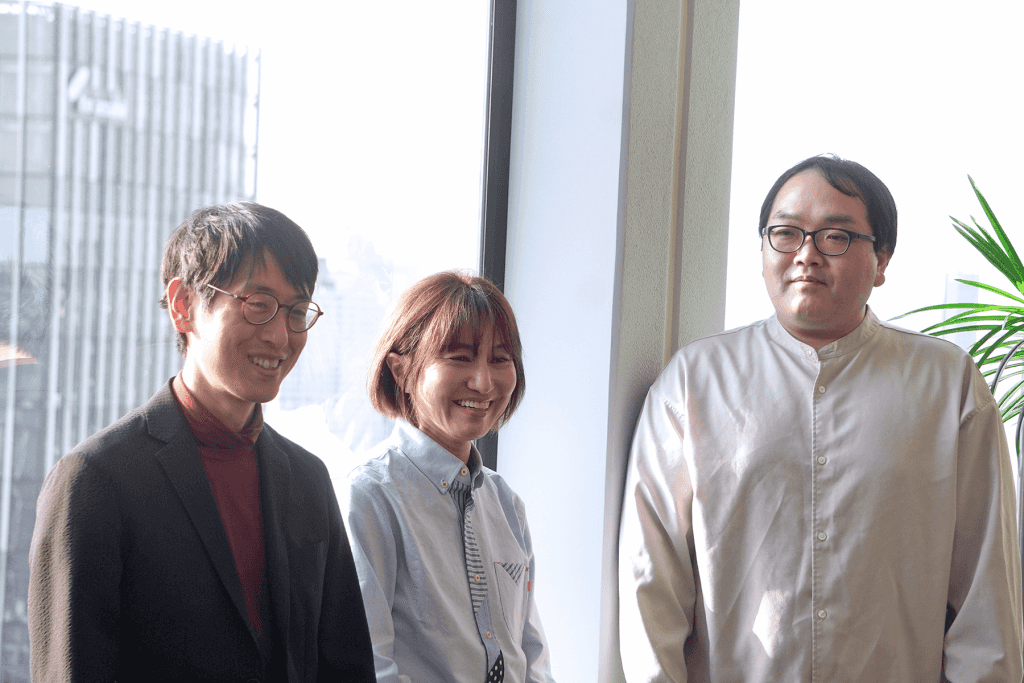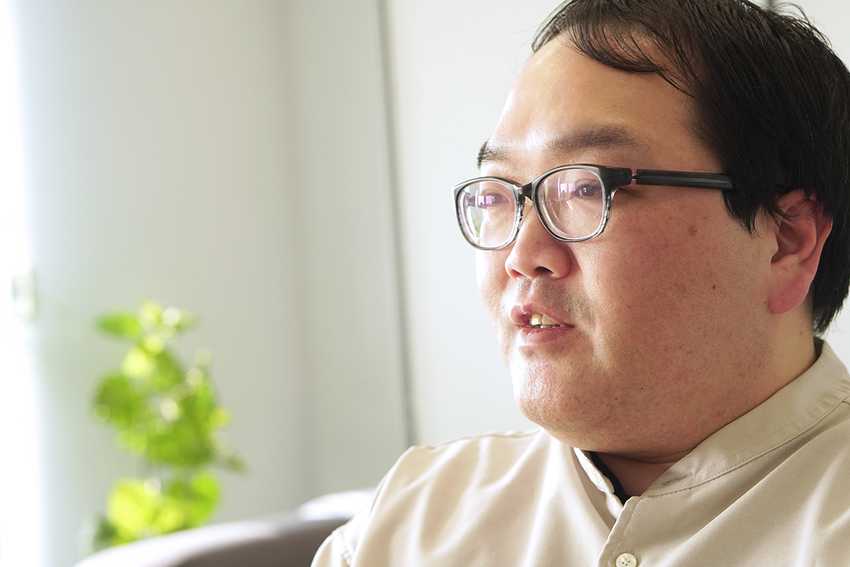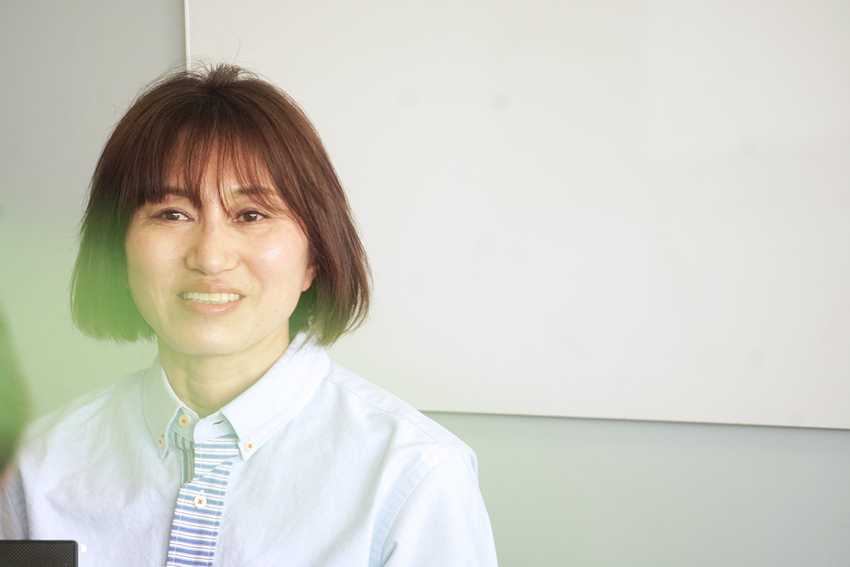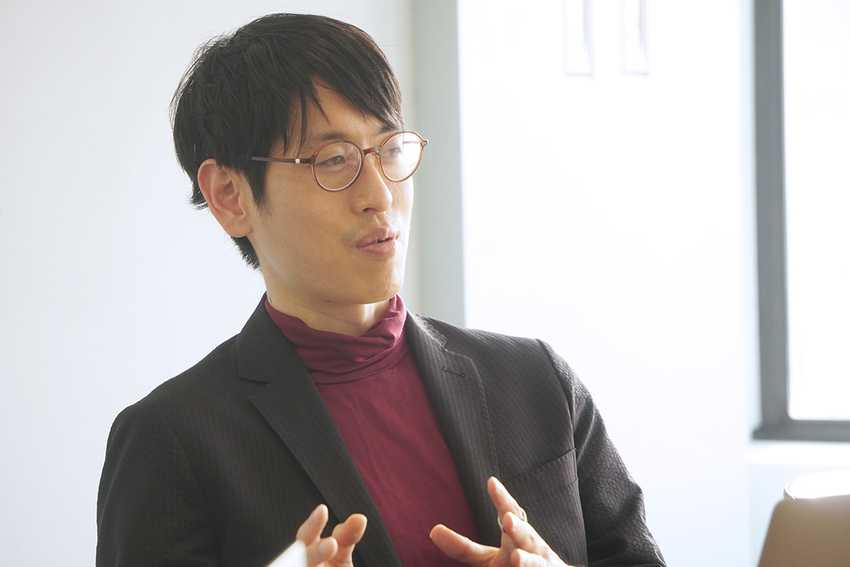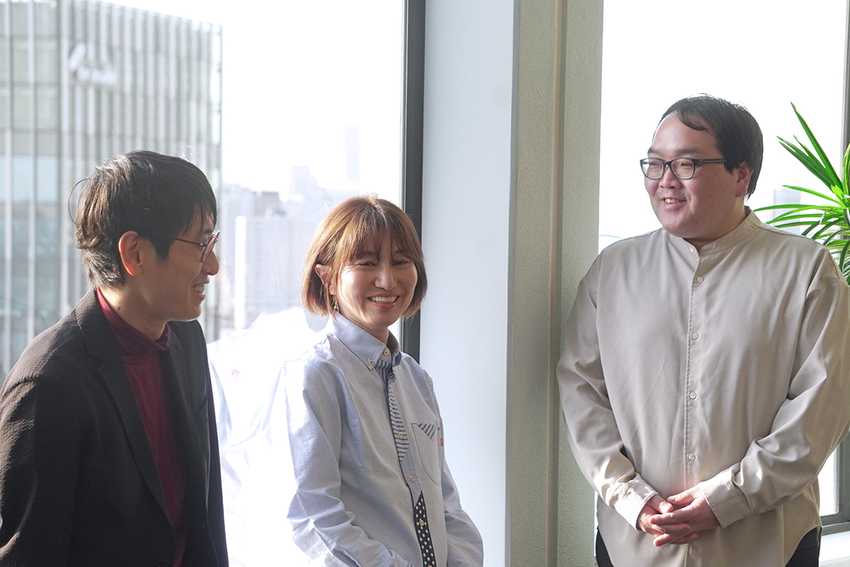※This article is a reprint of an interview published on Mercari’s owned media “mercan”.
Established in 2017, Mercari R4D (R4D) was created as a research and development organization that aims to implement its findings practically as part of the world at large. R4D stands for Research and 4 D’s: Development, Design, Deployment, and Disruption. Over the years, we have reached across the boundaries separating communities and applied various approaches in order to pioneer new value.
At the end of 2022, which marks the five-year mark since the establishment of R4D, the organization formulated their new mission, “Pioneering the path toward undiscovered value.” Going forward, Mercari R4D will become a hub that connects all communities around the world. The organization has now entered a phase that will allow it’s members to take on even more ambitious challenges while also seeking to give back to society by sharing the fruits of their hard work.
In this series, we are looking at the past, present, and future of Mercari’s research and development organization R4D over the course of three articles. For this second installment, we interviewed three people involved with R4D. They are: Ryosuke Yamamura (@yamachan), who is researching the inflatable mobility device Poimo, Miyuki Fujiwara (@fujimiyu), who is researching communication on marketplace apps, and Koki Kusano (@keiny), who is researching service design for a circular economy while holding his main position in the Merpay UX Search Team.
We asked them what sort of research R4D members conduct with the final goal of implementing their work in the community, and how they run their research in a way that fulfills their curiosity, resolves the problems of society, and creates value for Mercari all at the same time. You will hear the honest words of researchers working in a company.
The corporate environment brings a stronger sense of responsibility toward implementing the research in the community
──I would first like to ask each of you what your research topics are.
@yamachan:Let me go first then, as I joined Mercari in 2018, therefore I have the longest history here. (laughs) I am working on the research and development of Poimo, a soft and inflatable electric mobility device.
Poimo is designed to be soft to prioritize safety. Safety is a topic of research and development in the automobile industry as well, because, simply put, cars may hurt people. But if the body of the vehicle is soft, then the likelihood of such incidents decreases. It can also help optimize the most strenuous part of delivery work, which is taking a parcel from the truck to the recipient’s door.
@keiny:The topic I have been researching since January 2023 is service design for a circular economy. Mercari aims to create a circular economy. This goal comes with many smaller goals, representing its various aspects, that have to be achieved.
Just considering the feasibility of it means we have to figure out what technologies to implement, how much each will cost, etc. However, with the approach of people-centric design, we have to consider what situation our users are in, what they need, what they should experience, how the design will impact society and the environment, and so on. There are so many elements that can’t be handled with the effort of a single individual. We have to keep considering what approaches and methods to adopt in order to create a more sustainable service.
@fujimiyu:My topic is communication on marketplace apps. Whenever there is a problem between two users on the marketplace, CS acts as a mediator between them during communication so that the problem doesn’t grow larger. My research focuses on how to make the written messages sent by Mercari more favorable to users in such cases.
For example, even though we of course must be polite to our users, too many honorifics in a message makes it too long and too complicated to understand easily. On the other hand, formatting an apology with headings and bullet points just to make it easier to read makes some people find the message soulless and even condescending. Using sympathizing phrases such as “We understand this matter gives you concern” may seem favorable on the surface, but there are users who are put off by statements that comment on their feelings. Such users may react with something along the lines of “you can’t possible know how I feel, so don’t tell me that you do.”
We would not know of such reactions to our messages without directly hearing from the users receiving them. I take a diverse sample of users/readers from different gender and age groups, and painstakingly interview each one to collect and analyze their feedback. We use that data to search for the right balance between communicating information and communicating emotion.
──I can clearly see that R4D has gathered quite a diverse team of researchers. In particular, @yamachan’s Poimo project is unique in that it is hardware-based. Can you talk about how this project came about within R4D?
@yamachan:Before R4D I was in Denso, working on the research and development of diesel engines for close to 10 years. However, the research and development of engines involves a major amount of effort just to reduce fuel consumption by a small margin. It’s like taking a machine learning model that is 99% accurate, and making it 99.1%. After leaving my previous company, looking for a bigger challenge, I was contacted by Mercari for an interview. They were recruiting hardware engineers for Merchari, a bicycle sharing service that is no longer within the Group.
During my interview, the interviewers came to the conclusion that I was more fit to join R4D, so I was recruited there instead. I was then invited to a research offsite by Dr. Kawahara (current Head of Research, R4D) of The University of Tokyo, which was already a collaborative research partner. The idea of Poimo was born in that offsite. When we came up with it, we thought that it could not easily be built by any existing company at the time.
The basic flow of Mercari’s marketplace service has three steps: a transaction, the transportation of the item, and its safe delivery. This means we have the responsibility to transport items. We can make that part of the process safer by implementing R4D’s research in the community. In that way, I think our research not only has novelty, but also the possibility for great innovation.
──Some people may be of the opinion that someone who simply wants to run research projects would be satisfied in academia, for example. Would you say that the largest benefit of doing research in a corporate environment is implementation in the community?
@yamachan:Yes, that’s what I think. Since we’re in a company, we can’t let our research stay as just research. We have to implement it in the community and create real benefit. I personally favor such pressure and responsibility.
When I was working on engines at my previous job, I was very happy to open the hood of a car and see an engine of my design, or see my engines zoom through the city. I want to feel a sense of achievement that is only possible with complete implementation in the community. That can only happen with an organization dedicated to implementation in the community, or a business. That is why I believe R4D is the right place for me.
Brought to R4D by intellectual curiosity
──I believe the implementation of research in the community is a topic that fits Mercari as a whole, as well as @fujimiyu’s research on communication on marketplace apps.
@fujimiyu:My research is pretty much a hobby to me. Even though putting it that way might lead to quite the misunderstanding. (laughs) I am pursuing a topic of personal interest to me, so I feel a little guilty getting paid for it.
──@fujimiyu, how did you become a researcher and find yourself in R4D in the first place?
@fujimiyu:I was a science major, studying the relationship between volcanic rock formations and plate tectonics. Even though I wanted to be a researcher, I moved on to work as an engineer in a private company. During my time there, one day I began to very strongly wish to live in another country.
I was considering job options that would allow me to survive abroad, and I stumbled upon teaching Japanese. It was actually very interesting work. Business people, stay-at-home wives, diplomats, exchange students coming to Japanese universities, and so on. They all have different Japanese learning needs. I had to create custom learning plans for each student, and if my idea worked for them, they would succeed. I was obsessed with that sort of hypothesis testing.
In that process, I was drawn to the field of text comprehension. I joined a graduate school to do research on it, and later was lucky enough to join the National Institute for Japanese Language and Linguistics as a part-time researcher and build a reading and comprehension corpus as part of my research into reading and comprehension there. I acquired my doctorate in 2020 and started thinking about what I would research next, which is when I remembered how interesting the communications happening on the Mercari app are. I thought, “Of course! I can research Mercari!”
I didn’t have any connections in the company, so I typed up a proposal, pouring my heart and soul into it, and sent it in through the contact form so that I could draw their attention. Soon after, I received the offer to join Mercari and do research together.
──You have a colorful career, but I believe there is a consistent theme to your research, which is a constant pursuit of trying to understand “what the other person is feeling.”
@fujimiyu:I think I am very interested in people’s thoughts and feelings. I want to logically explain what, why, and how people think and do certain things the way they do.
@keiny:Hearing your story once again, it is clear to me that a strong sense of curiosity was what drew you to being a researcher. Your current interests match with what Mercari is looking for as well.
@fujimiyu:I think so, yes. However, it’s not like I knew I wanted to be a researcher from the start. I also had a long career as a Japanese teacher. More than the drive to do research, I always had a strong desire to know things about the world. I think that applies to all people… Or is it just me?
──My impression is that many researchers especially are driven by curiosity. That is not just you for sure. This question is for all of you. Was there a specific event in your life that drove you to be curious about things, eventually leading you to research?
@fujimiyu:When I was little, I always wondered why the hiragana character for “i” (“い”) was read as “i”. My parents would just tell me “because that’s just how it is.” I have been chasing the desire to know things ever since.
@yamachan:I can relate to that. What triggered my pursuit of research was the want to know why shooting stars were shooting when I was little.
@keiny:For me, it was playing video games like Mario and wondering why video games are so fun, and that brought me to my current work. Investigating how good games are made led me to the areas of building experiences and design.
My current job title is UX Researcher. The word “researcher” here holds more nuance than just user interviews. I am able to pursue my curiosity to wherever it takes me, and I learn and build knowledge. It all comes from the desire to know, and that’s very important to me.
@yamachan:I think what the three of us have in common is that we were all led to R4D by our curiosity. I’m glad that the organization is attracting such like-minded people.
A researcher’s career grows by going back and forth between research and practice
──What is your take on researchers working in corporations?
@keiny:Considering that the final goal of our research is implementation in the community, service design, which is my focus, is easier to research when I am close to a service that is actually built and delivered. That is also part of what makes R4D interesting—it is very close to the front lines.
I believe the distance between researchers and practitioners should close further, and we should be able to go back and forth more frequently. If someone chose to be a researcher, that should not bind them to that path forever. If they want to go into business practice, and maybe later come back to research to look into the things they discovered during that practice, all of those options should be available to them. That would certainly make the industry more interesting.
There is a lot of fascinating research happening around the world, yet not as many opportunities for researchers to put their findings into practice. Moreover, once a researcher goes into the corporate world, it is hard for them to return or give feedback to the world of research. R4D sits exactly on the border of those worlds. We have the possibility to put theories into practice, feed the insights back to our research, and eventually realize implementation in the community. This cycle makes R4D unique and attractive to me.
@fujimiyu:I agree. The Mercari app has so much text communication happening on it, but there was almost no concrete research on text communication until I joined the company. From an outside perspective, that was perplexing to me. Why would they ignore that aspect of the service? It is partially related to what @keiny was saying about freely going back and forth between research and practice. It seems that language academics simply did not enter the practice/business world as much. That is the sole reason.
On a similar topic, I don’t believe Mercari will be my final stop either. Mercari just happened to be looking for text comprehension researchers. I happened to find a place that fits my interests 100% at the right time, and it just happens to still match my interests as of now.
To my knowledge, research institutes don’t usually allow a researcher to be at the helm of their own work, because they usually have to participate in projects launched by other people. There aren’t many organizations like R4D where you can 100% do the research you want to. I find it very accommodating.
──keiny, you have your main duties in UX research, while concurrently working in R4D. Was your research topic of “service design for a circular economy” born of your own interests?
@keiny:Yes, I picked a topic of interest to me. A UX researcher is someone who interviews users, observes them testing a prototype, investigates their needs and issues, and so on. Most of the research done as part of that work focuses on short-term problems. However, I think we also need research over a long term that focuses on what sort of user experience the service aims to achieve overall and what that means to the community. A research portfolio that repeats short-term hypothesis testing while leveraging those for the long-term goal of discovering new value holds merit in my opinion.
It is also rare for a research organization to provide such flexibility in working style even to members holding multiple posts such as myself. That aspect is accommodating to me, as I consider both of these positions my life work.
How researchers work in a way that emphasizes communication
──We’ve talked about your careers and research topics so far, so now I would like to ask you what sort of environment you are currently working in.
@yamachan:yamachan: Since I’m working on hardware, I can build things at home or go to The University of Tokyo for my research. I just realized I don’t know this, but how do you two carry out your research?
@fujimiyu:My work cannot progress without me observing people’s communication, or collecting data through interviews so I can extract the phenomena to research. Last year, I was in the office every day for three months to hold interviews. After the interviews are over, the analysis phase begins. This basically means I’m at home and having a staring contest with the data. My job can entirely be done from home except for the data collection part.
Also, I need to be close to a whole bunch of different papers, otherwise my work efficiency will drop tremendously. It’s difficult to do my research from the office, actually.
@yamachan:Did you also turn your home into a lab?
@fujimiyu:I had been a sole proprietor of sorts since my days teaching Japanese. I had already adopted a style of work where I would prepare for the classes at home, and the university was just where I did the actual lessons. I have been working under the Your Choice work style policy (where every member can choose the optimal working style to maximize their performance and well-being) since joining Mercari, so my research style has not changed majorly.
@keiny:Most of my tasks can also be done digitally, so I’m usually at home. I think a lot of my time is used talking to someone online, though. Not just for the user interviews, but also for discussing with PdMs, BizDev people, designers, or other stakeholders.
──@keiny and @fujimiyu, you two seem to have user interviews as something in common. How about you, @yamachan?
@yamachan:I also have a lot of opportunities to speak with users. I spent whole days interviewing people at The National Museum of Emerging Science and Innovation in the past.
Mercari is not a hardware company, so there is a limit to what we can do by ourselves. That is why we run most of our research in collaboration with other companies. Sometimes they provide us places to run tests and experiments, and sometimes they approach us to ask if we can do something together. Either way there is a lot of communication involved.
@keiny:In my research as well, there are a lot of occasions where we collaborate with other companies or government offices. In researching service design for a circular economy, sometimes there is field work involved. This might mean visiting certain regions with regard to revitalization or communicating with manufacturers. I recently visited Satsumasendai in Kagoshima Prefecture to see their circular design initiatives. The experience reminded me that there are some things you can only learn in person.
Also, the models used in this field are huge, involving energy, raw materials, logistics, reuse, and recycling. Just like @yamachan said, it takes more than just Mercari to do some of the work required. That is why we collaborate with other parties to search for the methods to push us further ahead. There are a surprisingly large number of people coming up with novel ideas based on Mercari’s data and platform. I feel that there is a great potential of expanding our businesses through collaborative work.
R4D’s purpose of existence, and how its work will serve Mercari 3–5 years in the future
──Last question. What will R4D mean to Mercari in the future?
@yamachan:Mercari Group is aiming to create a world that uses the power of technology to connect people all over the globe, circulate all forms of value, and allow anyone to unleash their potential. The existence of R4D will help expand Mercari’s future vision for the world and grow its potential impact. I think it’s a place where experts come together to Go Bold and search for possibilities.
We are able to do research in areas that will definitely help Mercari 3–5 years in the future, or areas that the company cannot invest in right now, but might later. All of that effort serves the greater goal of realizing the world Mercari envisions. Recently I feel that more and more Mercari members see R4D that way, and their expectations of us are growing.
Most private research and development organizations have their missions and roadmaps ready ten years ahead of time, and all members have to adhere to those when conducting their research. However, in R4D we have to present what research will help Mercari realize its vision, and get approval for those topics. This is what makes working at R4D fun, but difficult.
As we propose our own topics, we naturally have responsibility for the results. R4D may not be a good fit for people who’d rather be told what to do, but it accommodates people who can take autonomous action and have a sense of responsibility.
@keiny:Mercari’s mission and values are a unifying power for the company and organization. Companies pursuing daily growth and UX improvement tend to focus on short-term product updates and little else. Having an entity like R4D searching for long-term solutions allows the company to run short-term growth and long-term expansion in parallel.
I think that I am able to contribute to the realization of the mission by leveraging service design toward a circular economy. It is an environment I can recommend to people who, like myself, want to implement their research in the community while sharing Mercari’s mission and values. We still have areas to cover and topics to pick. I hope to see more people join and to start something new together with them.
